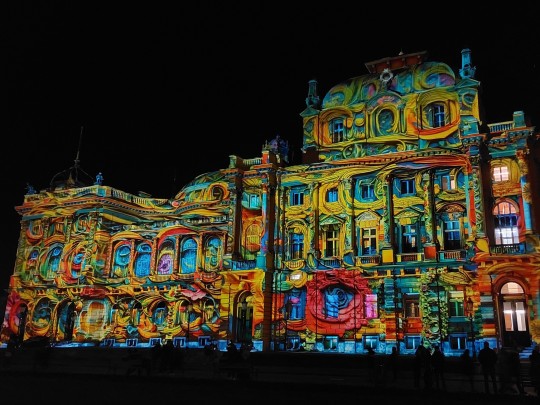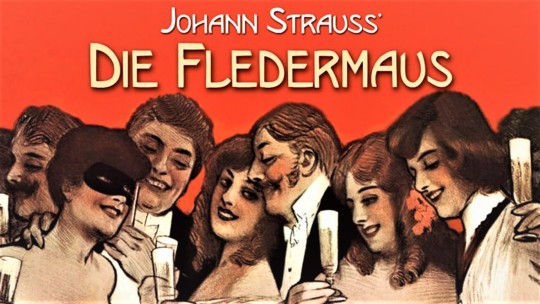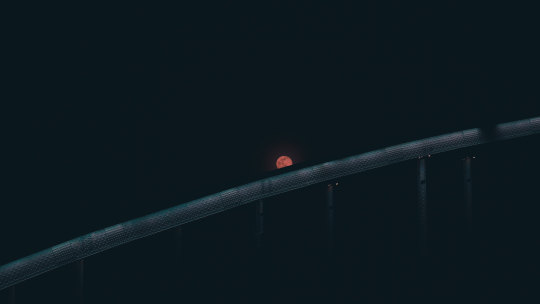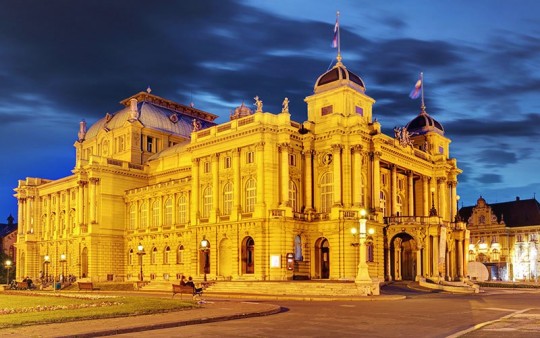#Croatian National Theatre in Zagreb
Text

Mario Diligente | Croatian National Theatre in Zagreb
34 notes
·
View notes
Text

Giovanni Messeri - Croatian National Theatre in Zagreb - photo by Tim Cross
#Giovanni Messeri#Croatian National Theatre in Zagreb#bailarín#danseur#dancer#ballerino#ballet men#tänzer#ballet#dance#boys of ballet#Tim Cross
45 notes
·
View notes
Text

14 notes
·
View notes
Text
Die Fledermaus Opera Croatian National Theatre Zagreb
Die Fledermaus Opera Croatian National Theatre Zagreb

View On WordPress
#Adele Rosalinda’s Chambermaid Soprano Darija Auguštan#Alfredo Rosalinda’s Opera Singer Admirer Tenor Filip Filipović#Ban Jelacic Square#Croatia Joins EU Schengen Countries#DARIJA AUGUŠTAN Soprano#Die Fledermaus Croatian National Theatre Zagreb#Domagoj Dorotić Tenor#Dr. Blind Eisenstein’s Lawyer Tenor Nikša Radovanović#Dr. Falke Eisenstein’s Friend Baritone Ljubomir Puškarić#Essaouira Morocco#Euro#Euro Replaces the Kuna#European Union Schengen Countries#FILIP FILIPOVIĆ Tenor#Frank Prison Warden Baritone Ozren Bilušić#Gabriel von Eisenstein Tenor Domagoj Dorotić#German Librettists Richard Genée and Karl Haffner#German Libretto#Henri Meilhac and Ludovic Halévy Librettists#Ida Adele’s Sister Soprano Josipa Bilić#Josipa Bilić Soprano#Krešimir Dolenčić Director#Lana Kos Soprano#Ljubomir Puškarić Baritone#Luka Vukšić Choirmaster and Conductor#Maghrebi cuisine#Moroccan Tagine#New Year’s Celebrations 2023#New Year’s Eve 2022#Nikša Radovanović Tenor
1 note
·
View note
Text





Zagreb (2) (3) (4) (5) by IVAN UJEVIC
Via Flickr:
(1) Hendrixov most
(2) Worm moon
(3) Arena ZG
(4) Sava River
(5) Croatian national theatre, HNK, at night
28 notes
·
View notes
Text

Mira in A Month in the Country; Croatian National Theatre, Zagreb; 1990.
2 notes
·
View notes
Text
The memoir LOVE ME MORE THAN ANYTHING ELSE IN THE WORLD: Stories about belonging by the late Mira Furlan, the Yugoslav-born star of Babylon 5 and Lost, has been published for the first time in English. Already one of the bestselling books in 2022 in Croatia and Serbia, the autobiographical work tells the story of Furlan’s remarkable life and creatively acclaimed career—along with the poignant and terrifying account of how her principled stand against the ethnic carnage that tore Yugoslavia apart in 1991 led her to leave the country with her husband, the director Goran Gajic.
Before leaving, Furlan wrote “A letter to my co-citizens,” considered by many to be one of the most powerful anti-war essays of the last century and a historic document of the situation of an artist in a war. It was published in the newspapers on both warring sides of the conflict.
In that piece, Furlan wrote, “I know and I feel that it is my duty, the duty of our profession, to build bridges. To never give up on cooperation and community. Not the national community. The professional community. The human community. And even when things are at their very worst, as they are now, we must insist to our last breath on building and sustaining bonds between people. This is how we pledge to the future. And one day it will come.”
A fierce media campaign against her continued, leading to her being fired by the Croatian National Theatre. Her main “sin” was starring at the Belgrade International Theater Festival, where the antiwar production of “Theatrical Illusions” (Corneille) was chosen to be in the main competition of the festival. (She had been performing the play for a year prior to the outbreak of the war.)
Furlan begins her book with the history of her family in Yugoslavia, a country that no longer exists. Part Jewish, part Croatian, Furlan grew up never feeling the strong pull of ethnic nationalism that lurked beneath the surface of the communist society. Born in 1955 in Zagreb and recognized early on for her extraordinary talent, Furlan achieved fame as a star of film, TV, and the stage across all of Yugoslavia by the late seventies.
Furlan and Gajic emigrated to the United States, settling in New York City and starting a hard immigrant life. After a rough adjustment, Furlan was cast in Babylon 5, the cult science fiction television series. She later appeared in Lost and many other television shows and stage productions in Los Angeles.
Furlan explains that she conceived the book as a letter to her son, saying, “He is the one to whom I want to tell this story: the story of his parents and their tortured country, the story of a life that had been torn apart by uncontrollable forces, the story of a continual search for identity, purpose and direction in difficult circumstances, the story of emigrating to a foreign place, of lives being torn into pieces, of fragile nature of friendship and love, of heartbreaking losses, of new beginnings, of expectations and disappointments, of America through a lens of a foreigner, of a woman’s experience in the acting profession practiced on two continents, of the fleeting nature of fame.”
She then remarks, “And while I’ve been trying to answer these unanswerable questions, toiling over words in a language that is not mine (although I audaciously pretend it is), something very strange has happened: you have grown up. Not only that: America has become a different country, a country ominously similar to the place we once left in horror and despair. There is no doubt anymore that the forces that chased us out of our own homes have won a global victory. We fought those forces once. Now we feel tired. We are exhausted by repetition.”
And, strangely enough, this book is becoming a different book. It is no longer a book of memories of a distant place and a distant time. It is becoming something very different: a plea to America and the world.
—amazon
1 note
·
View note
Text
During his studies, he was awarded with the Rector’s Award in 2010 (for new project “DuLuM”), as well as with the Dean’s Award in 2012 (as an assistant conductor in the production of Bizet’s opera Carmen). In 2013 he conducted a performance of Stravinsky’s opera Le rossingol. He continue to collaborate with the Academy of Music in Zagreb from 2016 on, as an Assistant professor (Conducting studies and Sight reading), as well as a conductor of the new production of Massenet’s opera Cendrillon in March 2020. Since 2013 he was a member of the team at Croatian National Theatre in Zagreb, firstly as a Répétiteur, later as a Studienleiter. As an assistant conductor, he made 10 productions for the theater: Les vêpres siciliennes, Don Carlo, Madama Butterfly, Turandot and Gurre-Lieder, just to name a few. He conducted performances of operas such as Don Pasquale, Mimi and Equinox. From September 2019, he is a member of Staatstheater am Gärtnerplatz in Munich, where he had his german debut in March 2021. He is a conductor and an artistic director for three ensembles: Vocal baroque ensemble Projekt Lazarus (with concerts in Rome, Vienna, Venice, Varaždin, Zadar and many more), Chamber opera company “Opera bb” (with two premieres: Die Lustige Witwe in 2017 and Die Fledermaus in 2019) and Chamber ensemble “Col legno” (with contemporary repertoire performed at many festivals in Zagreb, Cres and Rovinj).
Hello, dear Darijan and welcome in our Conductors of the future rubric! We are very happy to have the chance to get to know you better and to talk with you about your path & the beautiful world of opera. First of all, please, tell us about how everything started for you, about your musical journey.
Dear OperaCharm Team, it is a great pleasure having this opportunity to talk with you all present myself and my work to a wider audience. I’ve been living with music since very early age. My older sister is a concert pianist and I had often been present while she’d practiced at home and my father always mention that I’ve been humming with her and sometimes even correcting some mistakes even before I started to play piano myself – so, there was a conductor somewhere inside even then I’ve started to work with my first piano teacher around my 7th birthday in my small hometown Novska (Croatia) and piano is always near me and I think it will be my whole life the basis of my musicianship, but with time I’ve realized that I like to make music with my friends and colleagues more and more… In that sense, I’ve gathered a few friends and started my own choir during my high school. After graduation in both piano and music theory, I moved to Zagreb, where I studied conducting and eventually got my MA Diploma in 2014.
In 2011 you started your professional career as an assistant conductor in the production of Bizet’s Carmen, how was it for you? What is it like to have the chance, as a young conductor, to assist & be a part of the musical creation process?
Except for living with classical music, mostly repertoire for piano solo in my youth, I’ve always been interested in wide range of music, going from arrangements for all kinds of ensembles (from chamber choir to symphonic orchestra) to even playing pop music in a few different groups. Somehow, opera as a form got to my attention quite late, i.e. during my studies in Zagreb. That was really the so-called “A-ha moment” when I felt really like I got “infused” with some kind of a drug I could never get rid of. All joking aside, that was really a great pleasure to assist my professor at the time and get the chance to be included in all stops on the way of making an opera production – from the very first coaching and lessons, learning the roles with singers to conducting staging rehearsals with soloists and full chorus. That experience was and still is crucial for all projects that came later. I’ve had an opportunity to find a way of giving my best working patiently with singers on all needed skills within a goal of
performing his/her best, from mastering most of languages of operatic repertoire to sing other parts, that still makes me happy to this very day.
reposted from https://opera-charm.com/
0 notes
Text
1 June 2023 - Last look around Zagreb as we’re off tomorrow. We’re heading north with the aim of getting to Berlin for a Sparks gig on the 18th. This afternoon the Botanical Garden and a check on trains. In the evening we saw Leda, a play. In Croatian so we went really for the opportunity to visit the national theatre and immerse ourselves in the language. Finished with ice cream elsewhere. Nice end to our Zagreb visit. Next, Graz, Austria.










1 note
·
View note
Text
Emilia Romagna: Si conclude "Come devi immaginarmi" dedicato a Pier Paolo Pasolini

Emilia Romagna: Si conclude "Come devi immaginarmi" dedicato a Pier Paolo Pasolini.
Come devi immaginarmi è un progetto dedicato a Pier Paolo Pasolini, ideato da Valter Malosti insieme al critico d’arte, scrittore e accademico Giovanni Agosti, che si inscrive nelle celebrazioni per il centenario della nascita dell’autore (Bologna, 1922).
Il titolo è tratto dalla sezione Gennariello in "Lettere luterane", raccolta di saggi uscita postuma, l'anno dopo la morte di Pasolini. Gennariello è un trattato di pedagogia sui generis in cui ci sono, tra l'altro, pagine bellissime su Bologna e gli anni giovanili del poeta. La ricerca parte proprio da questo: come le nuove generazioni "immaginano" Pier Paolo Pasolini?
Pasolini è tra i pochi autori del Novecento di cui i più giovani sanno ancora che è esistito: non è stato travolto dall’eclisse di conoscenza che ha portato alla sparizione di un gran numero di voci. Questa sopravvivenza è dovuta – in gran parte – a una leggenda biografica, che ha permesso d’includere il poeta in un pantheon, ristretto e transgenerazionale, che annovera artisti, musicisti, scrittori.
Il progetto di ERT aspira a condurre un confronto diretto con l’opera di Pasolini, sfuggendo alle più facili e corrive mitologie del maledettismo. Per la prima volta sono state presentate sulle scene, in una sola stagione, contemporaneamente, l’intero corpus dei testi teatrali che Pasolini ha scritto, pur in alcuni casi rielaborandoli anni dopo, in un ristretto giro di mesi, nella primavera del 1966.
I sei spettacoli sono stati affidati, quanto alla regia, soprattutto a giovani registe e registi, mentre gli attori coinvolti non hanno limiti anagrafici. Si è partiti da Calderón, diretto dal regista Premio Ubu Fabio Condemi, che ha incontrato nuovamente le parole di Pier Paolo Pasolini.
Lo spettacolo è una delle 9 coproduzioni internazionali prodotte nell’alveo della rete europea PROSPERO Extended Theatre di cui ERT è partner insieme a Théâtre De Liège, Schaubühne (Berlino), Odéon-Théâtre de L’Europe (Parigi), Teatro São Luiz (Lisbona), Göteborgs Stadsteater (Svezia), Croatian National Theatre of Zagreb, Teatros Del Canal (Madrid), Teatr Powszechny (Varsavia) e con la collaborazione del canale culturale| ARTE (Francia) per la promozione digitale.
Il progetto è proseguito con Pilade diretto da Giorgina Pi e con Porcile nella versione di Michela Lucenti e il suo Balletto Civile, in una collaborazione inedita con Nanni Garella e i suoi preziosi attori del progetto Arte e Salute. Si arriva ora alle ultime tre tragedie: il parigino Stanislas Nordey, tra i maggiori registi e pedagoghi europei, nonché direttore del Teatro Nazionale di Strasburgo, rilegge Bestia da stile, che Pasolini stesso definì la sua “autobiografia”, identificando nella figura di Jan Palach il suo alter ego, condividendo con il ragazzo del dramma ideali, vita, resistenza, spirito politico e rivoluzionario. Nordey guida in questo progetto gli allievi attori della Scuola Iolanda Gazzerro di ERT.
Federica Roselllini e Gabriele Portoghese lavorano su Orgia: questa creazione prosegue idealmente il lavoro di ricerca che ha preso avvio al Centro Teatrale Santacristina nell’estate 2021. Le parole di Pasolini, nella voce di due giovani e già affermati interpreti della scena, risultano nuove e sorprendenti, restituendo la forza visionaria di questo ruvido apologo in versi ma anche la sua concretezza.
A chiudere il cerchio è Affabulazione: Marco Lorenzi, che lo dirige, convoca gli archetipi della famiglia di oggi attorno alle ombre delle vicende di Edipo re, in quella che lo stesso Pasolini definì una «tragedia che finisce ma non comincia».
È lo sguardo di una nuova gioventù dunque, a fornire una risposta all’attualità inesausta di una lezione etica e politica, che ha segnato più di una generazione. Il carattere del progetto si lega strettamente alla preoccupazione pedagogica di Pasolini, che informa la sua intera attività, dalla scuoletta di Versuta, creata all’indomani della guerra, fino alle lettere a Gennariello, poco prima della morte: l’ossessione per la perdita e la necessità di tenere in vita la memoria e la tradizione (“sono una forza del passato”).
Questo ambizioso progetto rappresenta una sfida nel paesaggio della cultura italiana di oggi: una sfida sui contenuti e sulla lingua, anche per le dimensioni, così fuori misura rispetto ai formati correnti.
Programma di maggio:
11 -14 maggio 2023
BOLOGNA / Teatro delle Moline
Orgia
a cura di Federica Rosellini e Gabriele Portoghese
18 - 21 maggio 2023
BOLOGNA / Sala Leo de Berardinis
Affabulazione
regia di Marco Lorenzi
25 – 28 maggio 2023
MODENA / Teatro Storchi
Bestia da stile
regia di Stanislas Nordey...
#notizie #news #breakingnews #cronaca #politica #eventi #sport #moda
Read the full article
0 notes
Text

Mario Diligente | Croatian National Theatre in Zagreb
49 notes
·
View notes
Text

Giovanni Messeri - Croatian National Theatre in Zagreb - photo by Peter Remeník
#Giovanni#Croatian National Theatre in Zagreb#Peter Remeník#bailarín#danseur#dancer#ballerino#tänzer#boys of ballet#ballet men#dance#ballet
47 notes
·
View notes
Photo


Croatian National Theatre || Split, Croatia
Opened in 1893, the theatre in Split is one of the oldest surviving theatres in Dalmatia.
#Croatian National Theatre in Split#split#croatia#Architecture#theatre#Europe#photography#travel#places#Croatian National Theatre#interestingly this is the third Croatian National Theatre I've seen and all three are yellow#this one and the ones in Zagreb and Varazdin
1 note
·
View note
Text
Madame Butterfly Croatian National Theatre Zagreb
Madame Butterfly Croatian National Theatre Zagreb

View On WordPress
#Benjamin Franklin Pinkerton - Stjepan Franetović#Cio-Cio San - Valentina Fijačko Kobić#Croatian National Theatre#Giacomo Puccini Italian Composer#Madama Butterfly Giacomo Puccini#Nagasaki Bay Japan#Pier Giorgio Morandi Conductor#Suzuki - Sofia Ameli Gojić#The Source of Life Ivan Meštrović Croatian Sculptor#Zagreb Philharmonic Orchestra
1 note
·
View note
Text

My friends from the student council and I at the Croatian National Theatre in Zagreb (HNK)
#not a dream#i have so many blisters#injuries and wounds on my legs and feet#i wore sneakers paired with a dress because everything else causes pain
799 notes
·
View notes
Text

CROATIAN NATIONAL THEATRE, ZAGREB🇭🇷. In Trg Republike. Built in Baroque Revival style it was inaugurated on 10/14/1895 by Emperor Franz Josef.
#travelarim#slow travel#balkan#croatia#architecture#hdr#theatre#Croatian National Theatre#Hapsburg architecture#architecture photography#baroque revival
1 note
·
View note